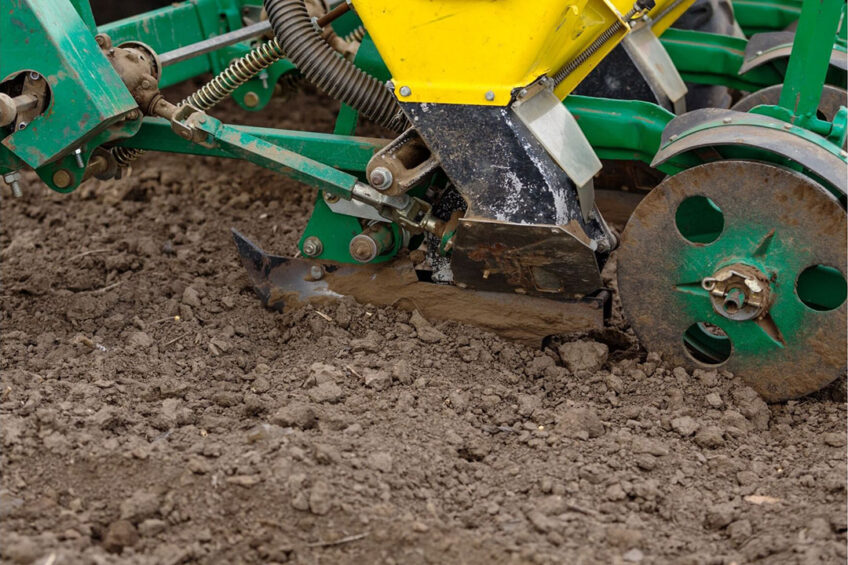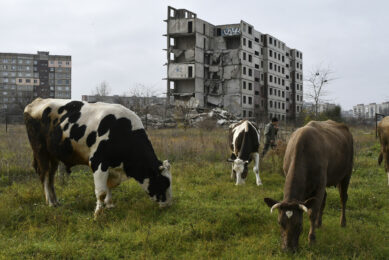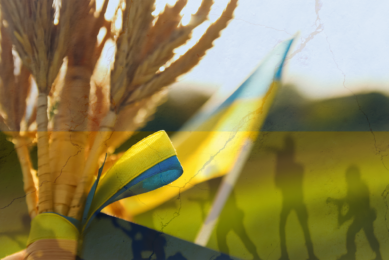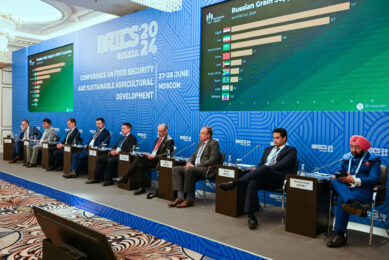Ukrainian farmers urged to sow more grain crops this spring

While missiles continue to bomb Ukrainian cities, the country’s President Volodymyr Zelenskyy has urged farmers there to sow as many hectares of grain crops as they can.
This spring, as much as any spring, we must make a full-fledged sowing campaign. As much as possible. Because it’s about life. About our life. About our future.
Uneasy period for Ukrainian farmers
It’s an uneasy period for the farmers because they should already be working in the fields preparing the soil for this year’s big harvest. Seeding should begin in April but there are many reports of Russian soldiers hiding their tanks on Ukraine farms to avoid an air attack.
Tractors are targets
It is best for the farmers to work at night time but their tractors are huge targets for the Russian military when they are using lights to see where they are going in the fields.
Markets dependent on Ukrainian grain
Ukraine is well regarded as the ‘breadbasket of Europe’ and had increased its grain production by 32% in 2021 to 85.7 million tonnes. Numerous countries around the world are dependent on Ukraine grain exports and if the balance of supply is affected, it has a major trigger effect all around the world.
Rising food prices
Due to the Russian invasion of Ukraine, global food prices for some commodities, such as bread, are tipped to rise by 20%, but there will be many other foods affected.
With this in mind, the Ukraine president called on his farmers to sow as much seed as possible this spring to ensure harvests are plentiful this year, but only if they were safe to do so.
Shortage of livestock feed
On top of export concerns, livestock farmers in Ukraine are fast running out of feed for their cattle, sheep, pigs and chickens and need to replenish stocks as soon as possible.
President Zelenskyy said: “This spring, as much as any spring, we must make a full-fledged sowing campaign. As much as possible. Because it’s about life. About our life. About our future.”
Prioritising which grains to plant
Ukraine is the world’s largest producer of sunflower seeds and in the 2021/2022 crop year produced 17.5 million tonnes. However, according to the agriculture producers’ union in Ukraine this volume is likely to decrease as farmers reduce the area sown to sunflowers, rapeseed and corn this year, replacing them with buckwheat, oats and millet.
Denys Marchuk, deputy head of the Ukrainian Agrarian Council, said: “The emphasis will be on spring crops that will be harvested in the summer, because we do not know what the situation will be going forward.
“For the full nutrition of its population and the armed forces, more emphasis will be placed on buckwheat, peas, those types of crops that will make it possible to harvest so that Ukraine is fully provided with food,” he said.
Shortage of fuel and fertiliser
However, farmers face a number of other challenges to get the crops sown in the ground as stock levels of diesel and fertiliser are low.
Ukraine deputy agriculture minister Taras Vysotskiy said a “war-induced shortage of fuel would be the main problem for farmers, as they have enough seed to proceed with spring sowing.”
Suspension of exports
Since the invasion, Ukraine has already suspended exports of rye, oats, millet, buckwheat, salt, sugar, meat and livestock and has introduced licences for wheat, corn and sunflower oil exports.











